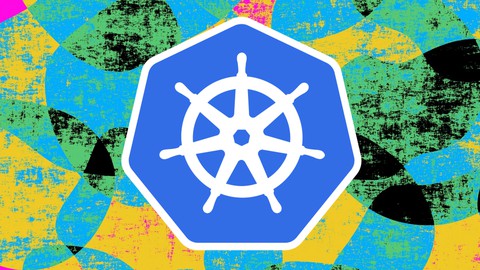
Minikube : A Simple Introduction to Kubernetes
Minikube : A Simple Introduction to Kubernetes, available at Free, has an average rating of 4.35, with 35 lectures, based on 143 reviews, and has 7385 subscribers.
You will learn about kubernetes : A Simple Introduction Minikube Introduction Deployment Secret and ConfigMap This course is ideal for individuals who are Beginner Devops It is particularly useful for Beginner Devops.
Enroll now: Minikube : A Simple Introduction to Kubernetes
Summary
Title: Minikube : A Simple Introduction to Kubernetes
Price: Free
Average Rating: 4.35
Number of Lectures: 35
Number of Published Lectures: 35
Number of Curriculum Items: 35
Number of Published Curriculum Objects: 35
Original Price: Free
Quality Status: approved
Status: Live
What You Will Learn
- kubernetes : A Simple Introduction
- Minikube Introduction
- Deployment
- Secret and ConfigMap
Who Should Attend
- Beginner Devops
Target Audiences
- Beginner Devops
This course is a beginners guide to Minikube .
Minikube is local Kubernetes, focusing on making it easy to learn and develop for Kubernetes.
All you need is Docker (or similarly compatible) container or a Virtual Machine environment, and Kubernetes is a single command away: minikube start
What you’ll need
-
2 CPUs or more
-
2GB of free memory
-
20GB of free disk space
-
Internet connection
Highlights
-
Supports the latest Kubernetes release (+6 previous minor versions)
-
Cross-platform (Linux, macOS, Windows)
-
Deploy as a VM, a container, or on bare-metal
-
Multiple container runtimes (CRI-O, containerd, docker)
-
Docker API endpoint for blazing fast image pushes
-
Advanced features such as LoadBalancer, filesystem mounts, and FeatureGates
-
Addons for easily installed Kubernetes applications
-
Supports common CI environments
This course will have sample examples and is meant for beginers to kubernetes and Docker
Kubernetes, also known as K8s, is an open-source system for automating deployment, scaling, and management of containerized applications.
It groups containers that make up an application into logical units for easy management and discovery. Kubernetes builds upon 15 years of experience of running production workloads at Google, combined with best-of-breed ideas and practices from the community.
Hope you enjoy this course and happy learning and please do not forget to review my course
Thank you and see you later
Also Please check out my other courses as well
Good Luck
Course Curriculum
Chapter 1: Introduction
Lecture 1: Introduction
Chapter 2: What is Kubernetes?
Lecture 1: What is Kubernetes?
Chapter 3: Kubernetes Architecture
Lecture 1: Kubernetes Cluster
Lecture 2: Control Plane/Master Node
Lecture 3: Node/Slave Node
Chapter 4: Installation of Kubernetes
Lecture 1: Ways to deploy your kubernetes cluster
Chapter 5: minikube
Lecture 1: Install minikube and Kubectl
Lecture 2: Create a Cluster
Lecture 3: Kubectl describe Command
Lecture 4: Communicate with pods using internal IP address
Lecture 5: overview
Chapter 6: Our First Application
Lecture 1: Controller in Kubernentes
Lecture 2: Create a Deployment
Lecture 3: Cluster IP Address
Lecture 4: Label and Selector
Lecture 5: Create a NodePort
Lecture 6: Overview
Chapter 7: Kubectl Configuration file
Lecture 1: Kubectl Apply Command
Lecture 2: Create Kubernetes Objects using Configuration file
Lecture 3: Creating a POD using a yml config file
Chapter 8: Volume
Lecture 1: Volume and Types
Lecture 2: hostpath
Lecture 3: empty dir
Lecture 4: persistant Volume & persistant Volume Claim
Lecture 5: Persistant Volume with example
Lecture 6: dynamic Persistant Volume with example
Chapter 9: Stateful Set
Lecture 1: Headless Service
Lecture 2: Stateful Set
Chapter 10: Daemon Set
Lecture 1: Need for Daemon Set
Lecture 2: A Simple Daemon Set using minikube
Chapter 11: Job
Lecture 1: What is a Job
Chapter 12: Config Map and Secret
Lecture 1: Secret
Lecture 2: Example of Secret
Lecture 3: What is config
Lecture 4: A sample Demo
Instructors
-
Rohit Abraham
AWS GCP Systems Architect
Rating Distribution
- 1 stars: 3 votes
- 2 stars: 7 votes
- 3 stars: 19 votes
- 4 stars: 45 votes
- 5 stars: 69 votes
Frequently Asked Questions
How long do I have access to the course materials?
You can view and review the lecture materials indefinitely, like an on-demand channel.
Can I take my courses with me wherever I go?
Definitely! If you have an internet connection, courses on Udemy are available on any device at any time. If you don’t have an internet connection, some instructors also let their students download course lectures. That’s up to the instructor though, so make sure you get on their good side!
You may also like
- Top 10 Language Learning Courses to Learn in November 2024
- Top 10 Video Editing Courses to Learn in November 2024
- Top 10 Music Production Courses to Learn in November 2024
- Top 10 Animation Courses to Learn in November 2024
- Top 10 Digital Illustration Courses to Learn in November 2024
- Top 10 Renewable Energy Courses to Learn in November 2024
- Top 10 Sustainable Living Courses to Learn in November 2024
- Top 10 Ethical AI Courses to Learn in November 2024
- Top 10 Cybersecurity Fundamentals Courses to Learn in November 2024
- Top 10 Smart Home Technology Courses to Learn in November 2024
- Top 10 Holistic Health Courses to Learn in November 2024
- Top 10 Nutrition And Diet Planning Courses to Learn in November 2024
- Top 10 Yoga Instruction Courses to Learn in November 2024
- Top 10 Stress Management Courses to Learn in November 2024
- Top 10 Mindfulness Meditation Courses to Learn in November 2024
- Top 10 Life Coaching Courses to Learn in November 2024
- Top 10 Career Development Courses to Learn in November 2024
- Top 10 Relationship Building Courses to Learn in November 2024
- Top 10 Parenting Skills Courses to Learn in November 2024
- Top 10 Home Improvement Courses to Learn in November 2024






















